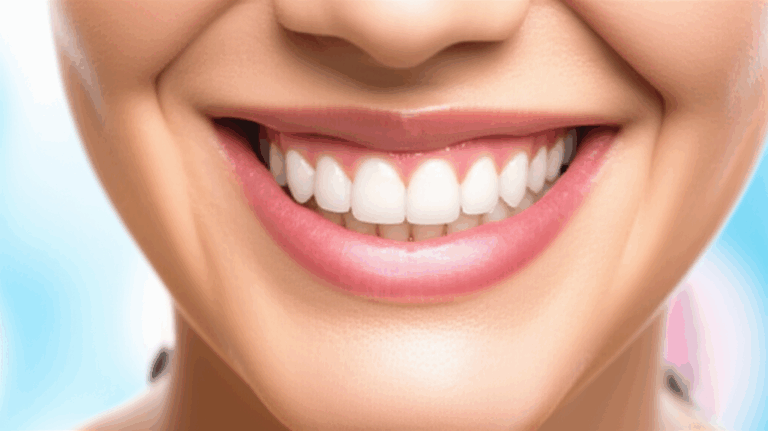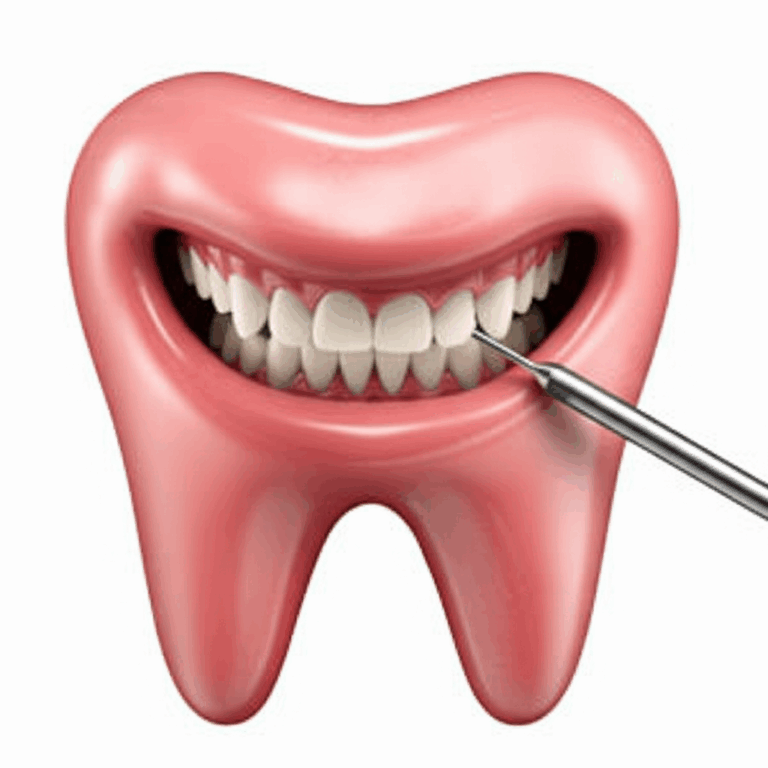
How to Overcome Fear of the Dentist: My Journey to Calm, Confident Dental Care
Table of Contents
- Finding the Right Dentist and Dental Team
- Preparing for Your Visit
- Mind and Body Relaxation Techniques
- Open Communication
- Distraction and Comfort Tools
- Sedation Dentistry & Pain Management
Introduction: You’re Not Alone With Dental Anxiety
If you’re reading this, you probably feel worried about going to the dentist. Maybe your heart beats fast just thinking about sitting in the dental chair, or you can’t forget a bad visit in the past. I’ve been there, too.
Most of my adult life, I was scared to see the dentist—sometimes I’d even skip visits. But let me tell you first: you are not alone. Studies say about 75% of adults get nervous at the dentist, and up to 20% have real fear. This isn’t just a small problem; some people skip care and end up needing more dental help later.
In this article, I’ll share what really helped me go from someone who avoided dental care to a person who feels OK in the dentist’s chair. I want to pass on tips, fixes, and lessons I learned—so your path to feeling better is easier than mine. Let’s break the cycle together.
Understanding the Roots of Dental Fear
Before I could work on my dental fear, I had to figure out where it was coming from. Dental fear is usually not simple. Here are some reasons I found out (and sometimes had trouble with myself):
Bad Past Experiences
My own fear started when I was a kid. One dentist ignored my “stop” sign during a filling, and I felt stuck and out of control. That one bad visit changed how I felt about dentists for a long time.
Fear of Pain
Most people don’t want to hurt. Needles, drills, even cleanings can bring up real fear. Many of us think the dentist means pain, even if that’s not always true.
Loss of Control
Lying in the chair with my mouth open always made me feel like I couldn’t do anything. I hated not knowing what would happen next, and that made my fear worse.
Feeling Embarrassed or Ashamed
I used to worry my dentist would judge my teeth or if I gagged during X-rays. Feeling embarrassed is a heavy thing to bring to an appointment.
Things That Make Your Senses Bothered
The sound of the drill, the bright lights, even the smell of the office can make you more nervous if you’re sensitive.
General Worry
Sometimes dental fear is part of bigger anxiety. When I was stressed in life, dentist visits seemed even harder.
Noticing these triggers helped me—and it can help you—find the right ways to cope.
Laying the Groundwork: What Helps Before the Appointment
This is where my journey really started to get better. I learned that you don’t have to just “hold on” during treatment. What you do before your appointment can help so much.
Finding the Right Dentist and Dental Team
For years, I thought all dentists were pretty much the same. I was wrong.
I began looking for dental offices that said they help people with fear. I searched for “gentle dentist” or “sedation dentist” in my town and found places that cared about nervous patients. I also checked reviews—patients often write if the dentist listens and explains things.
When I called or emailed to ask about making an appointment, I didn’t keep my fears secret. I just said, “I’ve had bad visits and get very anxious. Do you help patients like me?” How they answered told me a lot about how kind they were.
Tip: Ask if they have extra things for comfort—like cozy blankets, soft music, headphones that block loud sounds, or a TV in the room. These little things can make a big difference.
Picking a dentist who truly cares about talking and making you comfortable changed everything for me. If you don’t feel OK at one place, keep looking—trust what your gut says.
For special fixes like crowns or veneers, going to a clinic that teams up with good china dental labs can make things more comfortable and look great.
Preparing for Your Visit
How I set up and got ready for my visits really mattered, too. Here’s what helped me a lot:
- Book the First Appointment: Early visits mean less time to get nervous.
- Bring Someone You Trust: Even just having a friend in the waiting room made me feel braver.
- Write Down Questions Ahead: Making a list helped me feel more in control and less lost.
- Tell the Receptionist: Saying I was nervous when I booked set the right mood for a caring visit.
- Ask About the Time: If long appointments were too much for me, I’d ask for shorter, easier sessions when possible.
Mind and Body Relaxation Techniques
Learning some calming tricks helped me so much.
- Deep Breathing: I’d practice slow breaths at home and in the car. Focusing on my breathing helped me calm down.
- Tensing and Relaxing Muscles: I’d squeeze and relax my muscles, starting at my feet up to my head. This really made me less tense.
- Guided Apps: Some apps have calming stories or meditations for dental stress. Even five minutes helped me a lot.
- Picture Something Nice: I’d imagine myself breezing through the visit and then getting a treat after. It sounds silly, but it really helped.
- Headphones With Music or Podcasts: Bringing headphones and listening to something easy helped take my mind off the scary stuff.
Some places even offer more—like nice smells in the office or digital dental lab machines that make visits faster and easier.
By the time I got in the door, I already felt calmer instead of trapped in worry.
What Actually Helps During a Dental Appointment
Here’s what mattered most: how to stay calm and in charge while you’re in the dental chair.
Open Communication
What finally helped me deal with my fears? Talking honestly with my dentist. Here’s what worked:
- Have a “Stop Signal”: From the start, I’d agree on a signal (like raising my hand) if I needed a break. When the dentist respected this, I started to trust them again.
- Ask for Step-by-Step: I’d ask them to tell me what they were doing. Knowing what was next made it less scary.
- Speak Up: If anything felt wrong, I said something right away. I realized I didn’t have to just put up with pain or fear.
Experts say that just feeling heard can cut dental fear by half.
Distraction and Comfort Tools
Sometimes, the best thing is to keep your mind busy with something nice.
- Noise-Blocking Headphones: I’d listen to audiobooks or music playlists. It’s hard to focus on fear when you’re paying attention to a story.
- TVs or Virtual Reality: Some new clinics (and many kids’ dentists) have things like Netflix shows or VR headsets. Distraction is good for adults, too.
- Stress Balls or Fidget Toys: If I kept my hands busy with a little toy, I didn’t focus as much on my mouth.
Sedation Dentistry & Pain Relief
For really big visits (like tooth pullings or big repairs), sedation was a lifesaver for me—and maybe it’ll help you too.
Laughing Gas (Nitrous Oxide):
This is a gentle gas you breathe in to help you relax fast, and it goes away quickly. I was awake, but calm and didn’t notice the dental work much.
Taking a Calming Pill:
One time my dentist gave me a medicine to take before the visit. It made me sleepy and relaxed, and I didn’t remember much about the visit after.
IV Sedation:
For really hard procedures, a doctor put medicine in my arm. I was “awake” but super relaxed and barely knew what was going on. I had to rest longer after, but it was worth it for peace of mind.
Numbing Medicine & Gel:
My dentist always started with numbing gel before the shot. If I felt any pain, I’d tell them and they fixed it with more numbing. Stopping pain was their main job.
Talk to your dentist about sedation or other therapies like hypnosis—they use these tools all the time now, not just for “last-ditch” cases.
For big dental jobs, some clinics even work with a special dental ceramics lab to make things quicker and cut down how many visits you need.
Long-Term Solutions That Changed My Relationship With Dentistry
While these tips calmed me down during visits, I wanted lasting freedom from fear. Here’s what really worked:
Cognitive Behavioral Therapy (CBT)
I saw a therapist who helped me with my worry. Together we made coping plans just for my fears. By working up little by little (like just sitting in the waiting room, then short, easy visits), I slowly broke the habit of always getting scared.
Experts say up to 85% of people who try dental CBT can get dental care without needing sedation. It didn’t happen super fast for me—but the change lasted.
Other Therapies
Some friends found help with hypnosis or acupuncture. While not everyone is the same, it’s worth trying if nothing else works. It’s all about what fits you best.
Make Dental Visits Regular
What surprised me most was how good visits built up my bravery. Instead of missing years and needing more dental work, I started to come in for check-ups on a set schedule. The staff remembered me; they earned my trust slowly. Small wins—like finishing a cleaning with no panic—helped me get ready for bigger ones.
Be Proud of Progress
Any step forward is a win. I’d treat myself to something nice after a good visit. Remember how far you’ve come—getting past fear is no small thing!
Dental Teams That Genuinely Care Make All the Difference
For me, the best way to beat dental fear was finding a team that listened, comforted, and cared about me—not just my teeth. Here’s what I found in the best offices:
- Staff Who Trained for Nervous Patients: These offices made me feel safe from the very first call.
- Kind Words: No judging, no shame—just help and kindness.
- Good Waiting Rooms: Places made to help you relax, not get more stressed. Even small things (like a smile and comfy chair) count.
A great dental team cares about your comfort and trust as much as your teeth. If you ever feel ignored or pushed—remember, you can find a better place.
It also helped me to read stories and advice from people like me on sites like patient dental. Sometimes, hearing how others did it gives you the push to try again.
Conclusion: Take Charge of Your Dental Health – One Step at a Time
Getting over my dental fear didn’t happen in one day. It was—and sometimes still is—a process. But every tiny step turned into real progress.
Here’s what I want you to remember most:
- You’re not alone. A lot of people feel just like you.
- You can figure out and work on what causes your dental fear.
- Doing things before, during, and after your visits really does help.
- Sedation, therapy, and distraction are all OK to use—don’t be afraid to ask.
- Finding a team that listens and makes you comfy is really worth it.
- You have the right to ask questions, set rules, and be in control.
Your mouth health matters—not just for your teeth, but for feeling well and confident too. If I can get past years of fear, you can too.
So, take a deep breath. Call that kind office. Let your next visit be your first step to a healthier, happier life—without so much fear.
And if you ever need a little encouragement or help, remember: you’ve got people out here who made it through and are cheering for you.








